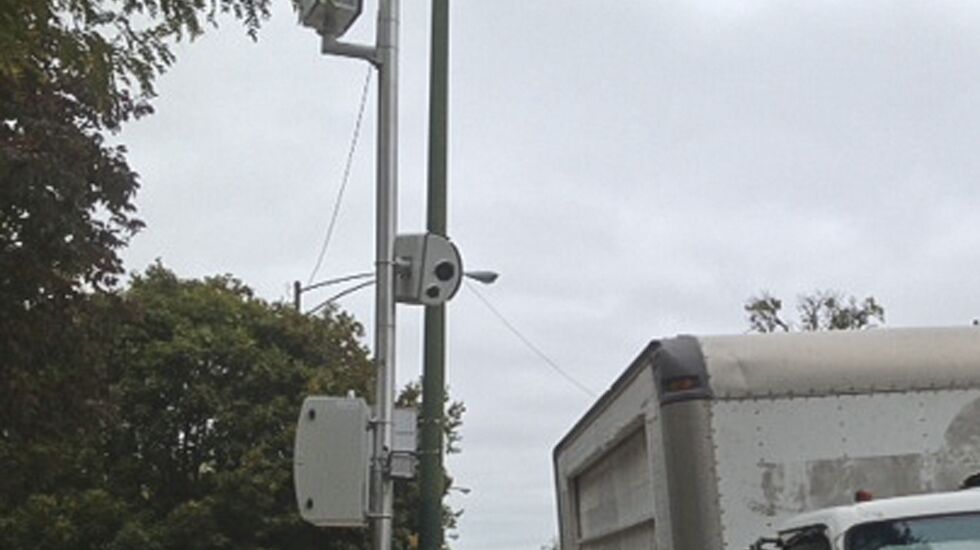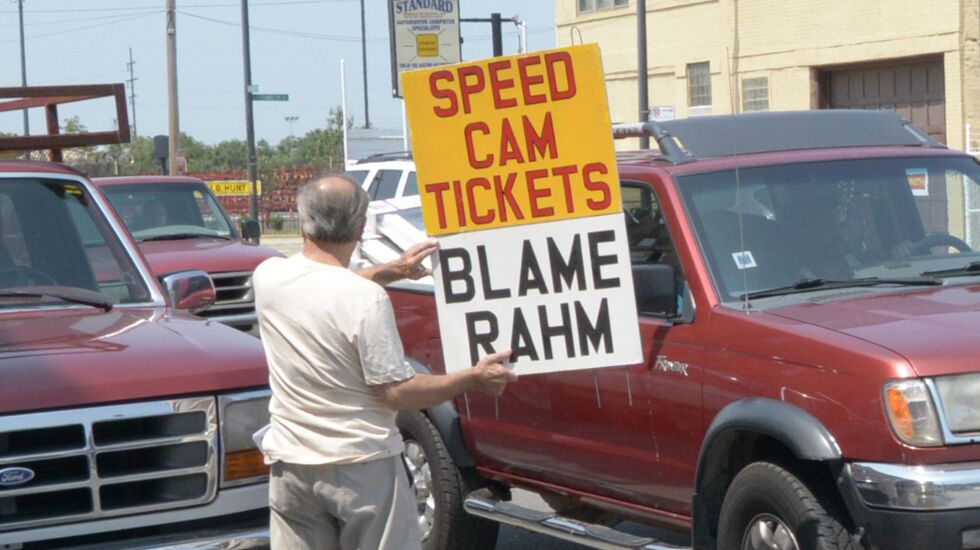
Mayor Lori Lightfoot was spared Thursday from a humiliating political defeat at the expense of speeding motorists blamed for a rash of recent accidents, injuries and fatalities on Chicago streets.
Ald. Scott Waguespack (32nd) abruptly recessed the Finance Committee he chairs when it became clear that the votes were there to force the mayor to stop issuing $35 tickets to motorists caught on camera going between 6 and 9 miles an hour over the speed limit.
Ald. Anthony Beale (9th), one of Lightfoot’s most outspoken City Council critics, has tried for more than a year to raise the speed camera threshold. He wants $35 tickets for going 10 mph too fast and $100 for speeding 11 mph over the limit.
Beale calls the lower threshold — which has generated $30 million since March, 2021 — a “money grab” and “all about revenue” — and his argument might have succeeded sooner if not for a series of parliamentary maneuvers and other stalling tactics.
On Thursday, Beale was poised for victory after a two-hour hearing on the speed cameras.
That’s when Waguespack abruptly called off the roll call vote and recessed until 2 p.m. Tuesday. The chairman explained the delay by citing the many questions his colleagues had asked that needed to be answered.
Beale didn’t buy that explanation by a long shot.
“The administration wants time to twist peoples’ arms to vote against the ordinance. They were working the phones while we were in committee,” Beale said.
Beale vowed to spend the weekend “working the phones” himself in hopes of getting motorists the break he believes they sorely deserve.
Near the close of the two-hour hearing, Beale told Transportation Commissioner Gia Biagi and her top aides: “The argument that you all are trying to make that this is about public safety is totally, totally disingenuous. It’s all about revenue. We know that.”
He added: “I wish my residents could write off $35 time and time again. But these cameras are impacting the people who can least afford it. ... That’s just totally not right,” Beale said.
Ald. Susan Sadlowski-Garza (10th), Lightfoot’s hand-picked chairman of the Committee on Workforce Development, acknowledged the pandemic has turned driving on Chicago streets and expressways “into the Wild, Wild West.”
But, she said: “I don’t believe in speed cameras. Never did. … They prey on people. ... It doesn’t change the way people drive. ... I have one camera that generated over a million dollars in a six-month period. It’s not making people go slower. We don’t have any traffic crashes around where the cameras are at. I have more traffic crashes on 130th, where there’s no cameras at all.”
Budget Committee Chair Pat Dowell (3rd) also supported Beale.
“We need to right-size and correct the things that are wrong in the system first before we start adding to it” by lowering the ticketing threshold, Dowell said.
Mayoral challenger Roderick Sawyer (6th) said it’s “really difficult to try and legislate [against] bad driving.”
“We need to eliminate this 6-to-10 mile-an-hour threshold and continue to work on traffic calming and other things that we can do to get people to slow down to make sure that we have a safe city,” Sawyer said..
Lightfoot’s 2021 budget assumed $68 million in additional revenue from “enhanced fine enforcement initiatives.”
The lower-threshold for speed-camera tickets was chief among them. The City Council also had authorized Mayor Rahm Emanuel to take that action, but it didn’t happen.

Lightfoot made it happen, generating an avalanche of new tickets — up to 1,000-a-day, by one estimate.
The mayor has repeatedly defended her decision to lower the threshold as imperative to “keep communities safe,” though it contradicts her campaign promise to unwind the city’s addiction to fines and fees that fall more on the backs of low-income people.
“Unlike fines for non-moving violations that did fall disproportionately on Black and Brown Chicagoans and drove people into bankruptcy, people have control over whether they speed or not. The signs are very well marked,” Lightfoot once told reporters.
“It’s my hope that people will take this as an opportunity to check their speed, because we can’t afford to have more people injured and more lives lost.”
Before sparing the mayor defeat, Waguespack made an impassioned plea to maintain the lower ticketing threshold.
His argument mirrored the one by Biagi: That at a time when pedestrians in general and children in particular are being mowed down on Chicago streets, it makes no sense to take a “tool out of the city’s tool box.”
Last year, 174 people were killed in traffic crashes in Chicago, the highest death toll in a decade.
“The attitude out there on the street of disrespect to police officers, disrespect to parents who are trying to walk their kids across the street — if it takes speed cameras to slow them down and hit `em in the pocket, then so be it,” Waguespack said.
“Because we can’t put in enough speed humps. We can’t put in enough bump-outs to really change this behavior overnight.”







